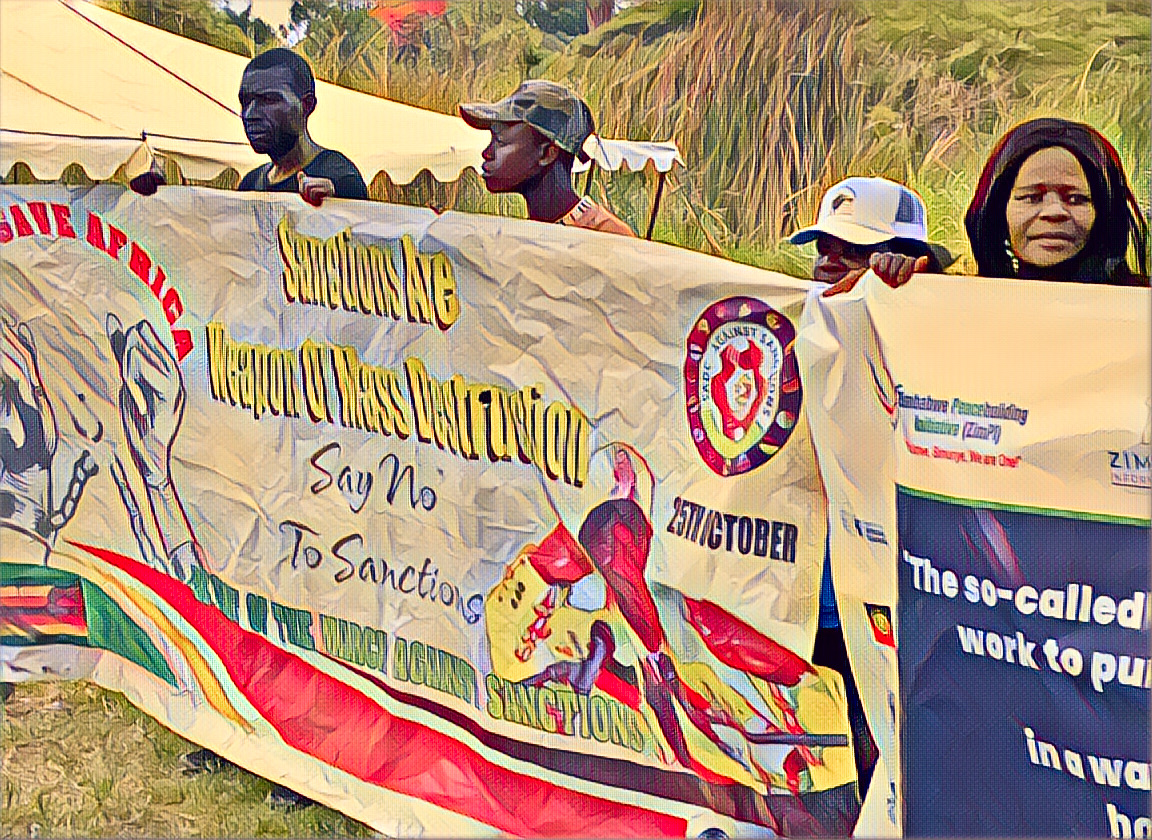KEY POINTS
- Zimbabwe’s anti-sanctions protest in Harare drew low attendance.
- The U.S. asserts that only 11 officials, not the populace, face sanctions.
- President Mnangagwa calls sanctions a key barrier to Zimbabwe’s growth.
Zimbabwe’s government-staged protest against Western sanctions saw a low turnout in Harare on Friday, despite high expectations for widespread support.
The Zanu PF-led demonstration outside the U.S. Embassy highlighted the impact of sanctions on government officials, though few citizens attended the protest.
Meanwhile, President Emmerson Mnangagwa and other government representatives rallied in Bulawayo, launching an online petition to garner public opposition to the restrictions.
Government asserts impact on economy
Speaking to the assembly in Bulawayo, President Mnangagwa underlined that Zimbabwe’s economic development has been hampered by the sanctions, which were put in place more than 20 years ago.
He asserted that the actions have limited the nation’s capacity to draw in foreign investment, obtain free trade, and obtain financial assistance from other countries.
Mnangagwa asked for public support in condemning the limitations, saying, “These sanctions have hindered our right to self-determination, slowing our development and affecting everyday Zimbabweans.”
According to New Zimbabwe, he also argued that the sanctions had put a strain on vital services, linking Zimbabwe’s economic difficulties to limited access to international trade and cash.
U.S. refutes Zimbabwe’s claims, cites corruption
The U.S. Embassy started a campaign ahead of the demonstration to emphasize that, contrary to what the government claims, the sanctions exclusively target 11 high-ranking officials and not Zimbabwe’s 16 million residents.
According to the embassy, the main factor hurting Zimbabwe’s economy is corruption rather than sanctions.
The United States reiterated in online advertisements that the sanctions list only includes specific individuals who are alleged to have violated human rights and undermined democratic processes.
The U.S., U.K., and EU first levied sanctions in the early 2000s in response to former President Robert Mugabe’s contentious land reform initiatives.
Since then, these measures have been reexamined; late this year, U.S. President Joe Biden partially lifted some limitations, but President Mnangagwa and his friends are still subject to sanctions.
Ongoing tensions and public sentiment
Even if the Anti-Sanctions Day demonstration in Harare did not garner much public support, Mnangagwa’s administration is still promoting the idea that sanctions are the main barrier to the nation’s economic development.
The petition launch in Bulawayo this year demonstrates the government’s intention to mobilize people against what it characterizes as harsh and damaging Western policies.
Zimbabwe’s government continues to push for the total repeal of targeted sanctions, despite the U.S. and other partners’ insistence that they are only applied to certain officials.


